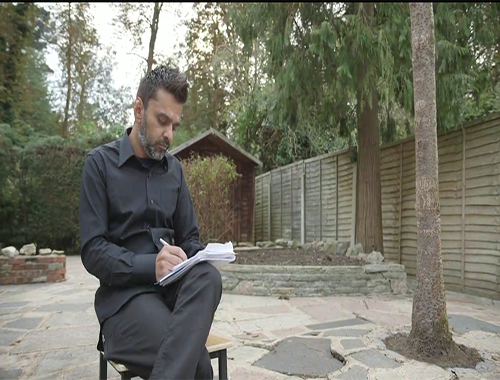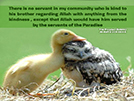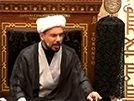
Humanity as the Core
The religion of Islam is dedicated towards the human being and ensuring a productive life in this world and the Hereafter. Since Islam was at the core of Imam Ali’s (A.S) leadership, the human being becomes a core automatically.
The Imam (A.S) did not segregate between the social classes. The Imam (A.S) was often seen roaming the streets of Kufa like everyone else. He did not need the army to protect him. He did not require a showy parade to inform people that he was passing by. In fact, many times, the people who interacted with him did not even recognize him. The Imam (A.S) used to help them. The Imam (A.S) used to protect them. One recalls the time where he brought food for a widow and her children and how he played with orphans. The Imam (A.S) was part of his people.
He cared about the poor very much. His representative in Basra, Othman ibn Hunaif Al Ansari, was once invited to a feast by a rich person. When Imam Ali (A.S) knew about the invitation, he sent a letter to his representative condemning this act [feasting with the rich while the poor have no place in that]. (Nahjul Balagha, Letter 45)
The Imam (A.S) worked very hard to ensure that no person felt on the outside of the community. Even if the person was not a Muslim, the Imam (A.S) wanted everyone to feel welcomed.
The Imam (A.S) was once walking in the streets, and he passed by a Christian beggar. His question was, “What is this?” When they told him that he is an old Christian man who cannot work and is asking people for help, the Imam (A.S) replied and said, “you [the Muslim community] used him [in his youth] and when he became old, you left him.” Then the Imam (A.S) assigned a salary for him from the treasury, the same way he did with Muslims. (Wasail al-Shia)
The question the Imam (A.S) raised in the previous story sheds light on yet another important aspect of his government. Note that the Imam (A.S) did not ask about the identity of the beggar; rather, he asked about the situation. (What, not who, is this?) In other words, the Imam (A.S) rendered begging as uncommon during his rule, and in fact it was. Imam Ali (A.S) fought poverty and begging by providing the three most essential needs for humans, independent of who they were: shelter, water, and sustenance (usually in the form of jobs). Unemployment was almost nonexistent during the Imam Ali’s (A.S) rule.
This article borrowed from Islamic Insight.
 Nahjul Balaghah - Islam Guidance
Nahjul Balaghah - Islam Guidance









